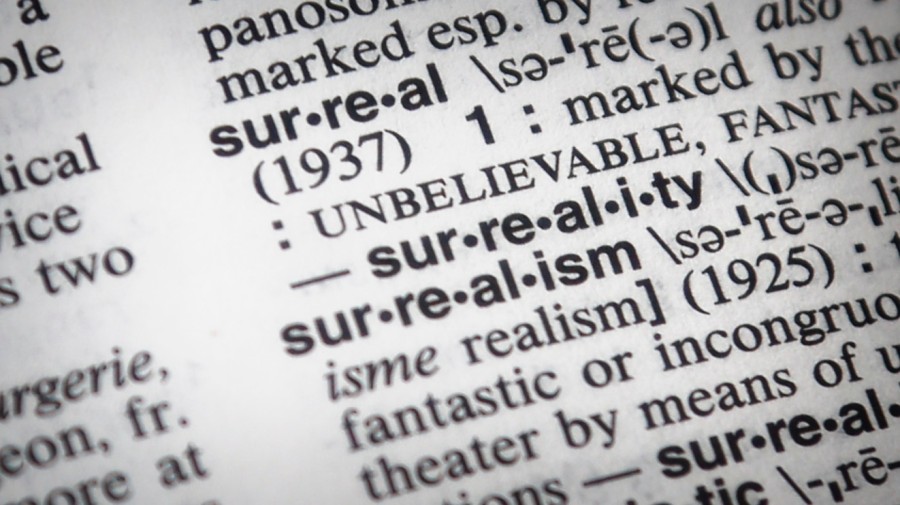‘Surreal’ Beats Out ‘Fascism’ As Merriam-Webster’s Word Of The Year


‘Surreal’ Beats Out ‘Fascism’ As Merriam-Webster’s Word Of The Year
“Surreal” is Merriam-Webster’s 2016 word of the year.
A few weeks ago, lexicographer and Merriam-Webster editor-at-large Peter Sokolowski told Morning Shift that “fascism” was the favorite to top its annual list of words that best reflect the year.
But Merriam-Webster announced Monday that “surreal” — which it defines as “marked by the intense irrational reality of a dream; also unbelievable, fantastic” — took the year’s top spot because of several search spikes at different times in the year — after the Brussels terror attack, the coup attempt in Turkey, the attacks in Nice, France and the presidential election in the United States.
Sokolowski returned to Morning Shift to explain this year’s selection. Here are some highlights from his interview.
On how the word of the year is selected
We do try to keep our word of the year to be a quantitative measure. If many people look up a given word, then we will notice. We will report that word. We have about 100 million words looked up a month.
There are two different kinds of high-volume lookups in our online dictionary. There’s the kind of perennial or evergreen word that’s looked up every day regardless of the news, and those include words that are kind of abstract in English; words like “pragmatic” or “integrity.”
What we looked for was the second type of high-volume lookups, which are these spikes — these individual events usually triggered by one utterance or one news event, or the World Series, something like that.
On why ‘surreal’ beat out ‘fascism’ as 2016’s word of the year
What we’ve found is that words like “fascism” and others — “socialism” — have been looked up so frequently — not just this year but last year also. The year-over-year growth was not impressive for those words.
In the case of “surreal,” we had something different, which was eight or 10 different spikes for different reasons — all for this same word — and that was quite remarkable. Not only, in other words, a year-over-year increase, but a lot of different reasons for that increase.
On the events that people tried to make sense of by using the word ‘surreal’
The only thing we’re sure of is when. We’re good at reading data. We’re not good at reading minds.
The fact is, a word like “surreal” is kind of an amazingly broad term. It’s a term that we have associated with tragedy for a number of years. It was one of the most looked-up words after 9/11, and then after that we noticed after the Newtown shootings, and after the Boston Marathon bombing, and Robin Williams’ suicide, for example. That was the word that people turned to.
And that tells us a couple things. One is that sometimes these words, like “deplorable,” are the words that are actually uttered by newsmakers or used by the media to give commentary or coverage. But sometimes words like “surreal” — I suspect — are looked up kind of spontaneously by many people at the same time when they’re reacting to a shock or surprise.
All I can say is that ‘surreal’ does seem to be a word that we associate with shock and surprise, and that theme seems to be the word of this year.
This interview has been edited for brevity and clarity. Click the ‘play’ button above to listen to the entire interview.
